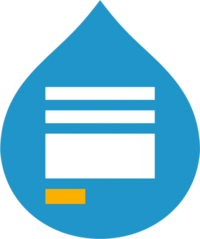Background
I am committed to using ethical technologies that respect your freedom. Elsewhere on the Web, social media companies and “surveillance capitalists” wield unprecedented power, not just to predict behavior, but to control it. This website avoids such surveillance tools and favors free software and open source tools.
The choices I have made regarding the technology used to build this site are informed by Buddhist principles, such as avihiṃsā (non-harming), adinnādāna (not taking what is not freely given), nekkhamma (renunciation or simplicity), and santutthi (contentment). These qualities guide my intention to avoid exploiting attention, extracting data, or accumulating more than is needed. Of course, such principles are not limited to wisdom traditions, but are expressions of basic human decency.
None of this is to suggest that I am building websites correctly and websites that do things differently are wrong. Rather, this page is meant to convey the intention behind my choices. This website, and this page, are works in progress and I welcome feedback.
![]()
Drupal as an Ethical Base
This website is built using a content management system called Drupal. The values and principles of the Drupal community align well with my own values. The Drupal community is one of the largest free software communities in the world, with more than 1,000,000 contributors working together. Drupal is the official content management system (CMS) of local organizations, such as the University of Minnesota and the Animal Humane Society, as well as international organizations such as Doctors Without Borders and the ACLU.
Read more about using Drupal as an ethical base
Accessibility
Accessibility is one of the features that makes Drupal so popular around the world with governments, nonprofits, and higher education. Both the Drupal community and I are committed to making websites accessible by people with disabilities. While building this website, I used various tools, such as WebAIM, to help make it more accessible.
Newsletter
Rather than use the tools that help facilitate the endemic spy pixels found in email nowadays, I chose a well-known Drupal module (add-on) called Simplenews that allows me to send email without surveilling the people who subscribe. I don’t need to know if you read my newsletter or if you clicked the links I share. I offer information freely, with an open hand.
Forms
Some websites use “free” software that provides forms to collect information. But those forms often require you to share personal information, which then gets shared far beyond the website where you filled out the form. Rather, this website simply uses Drupal’s built-in forms and contact functionality. If you choose to use the contact form or leave a comment on one of the blog posts, you can rest assured that the information you provide won’t be aggregated or sold to anyone.

Events
I occasionally offer free yoga and meditation classes through this website. I don’t use any of the “free” event software that sells your data to the highest bidders. Instead I use Drupal’s webform module, which allows me to offer events that allow people who subscribe without requiring them to hand over their data to another company.
Podcasts
Rather than host my podcast, Pretty Good Meditation, with a proprietary service, I host the podcast on my website using Drupal’s Podcast module. That module allows me to fairly easily post episodes to a podcast RSS feed. From that feed, my podcast is aggregated with podcast providers such as Apple Podcasts, Spotify, Stitcher, and others.
Search
Drupal’s built-in search functionality allows site visitors to search for content on this site. Using this module allows for me to retain control of your search data (I don’t save it), without needing to involve a corporate search engine or search appliance. The largest search providers in the world use your search data to analyze your behavior and then sell the results of their analyses to marketers and others who seek to control your behavior. This website is not particularly complex, and Drupal’s built-in search functionality works well enough while also respecting the worth and dignity of the people who search.

RSS
If you want to take full control of what information you receive from this website, you can subscribe via RSS, or Really Simple Syndication. RSS is an open standard that allows your devices to subscribe to the latest updates from this website in an easy to read format. The RSS feed includes headlines, descriptions, and other information and links back to this website. There is a lot of information on the Web about how to subscribe to RSS feeds, including this tutorial. If you would like to try an open-source RSS reader, you might consider Vienna RSS, Tiny Tiny RSS, or rss2email (my preferred RSS reader), which allows you to forward RSS feeds to your email address.

Creative Commons
The content on this website, unless otherwise noted, is licensed under a Creative Commons Attribution-NonCommercial-NoDerivatives 4.0 International License. This includes content such as the pictures and text on the site. Creative Commons is a nonprofit organization that helps overcome legal obstacles to the sharing of knowledge and creativity, and I support their mission.